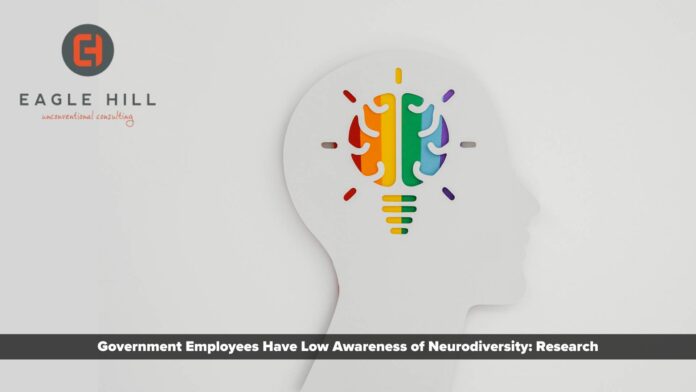For Neurodiversity Week, Eagle Hill Provides Government Officials with Practical Strategies to Unleash the Potential of Neurodivergent Employees
Sixty-one percent of government employees either said they are unfamiliar with the term neurodiversity or don’t know its meaning, according to new research from Eagle Hill Consulting. While 85 percent of government employees say they would hire, or have hired, a neurodivergent employee, few are trained on working with or managing neurodivergent workers.
These findings are detailed in a new report, Neurodiversity in Government: A Powerful Answer to Government’s Workforce Crisis Lies in Thinking Outside the Box.
“With about 15 to 20 percent of the population identifying as neurodiverse, some government agencies are actively pursuing neurodivergent employees through pilot programs and other hiring initiatives,” says Melissa Jezior, Eagle Hill Consulting’s president and chief executive officer. “This is a smart move given the workforce shortages facing agencies and because neurodivergent employees can add tremendous value to an organization. Neurodivergent workers often have exceptional talents when it comes to creative problem solving, attention to detail, math and data analytics skills, reliability, and perseverance.”
“But neurodivergent employees can face many big hurdles in the workplace stigmas that create an uncomfortable work environment, social and communication challenges, sensory sensitivities that make a typical workplace overwhelming, or executive functioning struggles that can hinder their organization, time management, and productivity,” Jezior said.
The new Eagle Hill research finds that when evaluating employee performance, most consider the ability to communicate clearly (53 percent) and stay organized (49 percent), as important evaluation criteria, skills that often are difficult for neurodivergent employees. The research also finds that most government employees (73 percent) indicate that they aren’t aware of promotions of neurodivergent workers, which isn’t surprising because performance metrics for neurotypical employees may not be aligned with the skills of neurodiverse workers.
Jezior added, “It’s encouraging to see that government employees are more cognizant of neurodiversity as compared to private sector workers. But our research finds there is much work to be done to raise awareness in the workplace about neurodivergent employees and to implement training and accommodations that will enable all employees to thrive. If leaders aren’t trained on how to effectively manage neurodivergent workers and there isn’t a culture that values their skills, agencies can’t fully tap into the unique strengths of these sharp employees.”
“For example, one action agencies can take is to train and equip staff on how to successfully manage and support neurodivergent employees. Creating mentorship and professional development opportunities for neurodivergent employees helps these employees reach their full potential. Thoughtful strategies targeted at the these out-of-the-box thinkers is a win for employees, managers, and the agency mission,” Jezior said.





